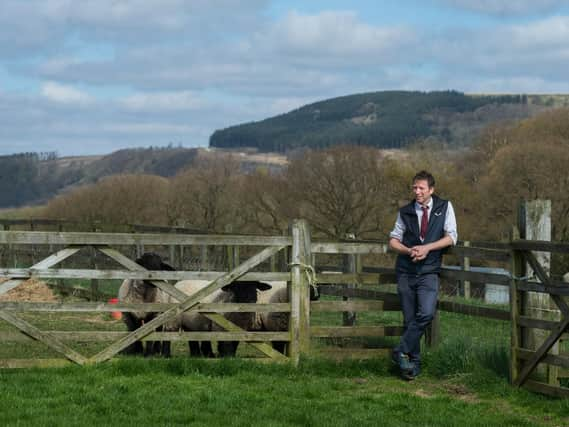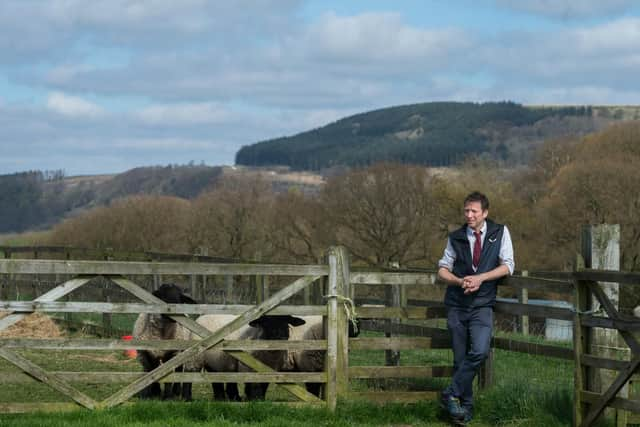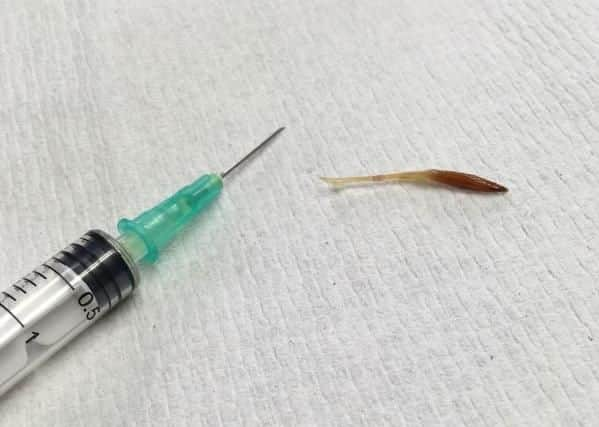Yorkshire vet Julian Norton and a dog with seed in his eye
This article contains affiliate links. We may earn a small commission on items purchased through this article, but that does not affect our editorial judgement.


Barney was a spaniel and if his health was to be judged by the ferocious wagging of his tail, then it would be assumed that he was completely healthy. However, a closer inspection at the other end of his body revealed a big problem.
“I think he’s got conjunctivitis,” explained his owner. “It’s been like it for a day or so and it’s not getting any better, so that’s why he’s here.”
Advertisement
Hide AdAdvertisement
Hide AdBarney did not want to stay still, so it wasn’t very easy to examine him in a lot of detail. However, his left eye was clearly very sore, running with gooey, greenish-yellow pus as well as a watery discharge. It was almost closed, but the bit that could be seen showed a scarlet red inflammation of the inner membranes.


I already had a pretty good idea of what might be going on and asked a few questions about the onset of the problem.
“Well, he’d been running through a field - as he does - and it was soon after that when it started. I wonder if there could be some dust or pollen in it?”
I suspected the problem was something a bit bigger than specks of pollen and immediately reached for a little vial of anaesthetic eye drops. Once the drops had been trickled in, everything became easier as Barney’s pain eased and the spasm in his eyelids relaxed.
Advertisement
Hide AdAdvertisement
Hide AdThis allowed me to examine him properly. Under the third eyelid there was the tell-tale brownish speck which suggested a grass seed. Grass seeds are a common problem in summer time and a problem to which spaniels seem particularly prone. I think it’s a combination of their height - just the same as the long grass through which they rummage - and also the way that they spring and bounce through the fields.


Whatever the reason, Barney certainly had one in his eye. I explained my plan to Barney’s owner, who didn’t seem to understand quite what I was saying (“a grass seed in his eye? How can that be?” I could imagine, in the thought bubble hovering above his head).
With artery forceps, I carefully everted the third eyelid to allow me a closer look underneath. There it was. Only its spikey end was visible, but it was definitely there. I carefully grabbed the end I could see and let Barney pull backwards, so that the foreign body emerged.
Advertisement
Hide AdAdvertisement
Hide AdIt was just as I expected - a seed of grass, complete with head, long tail and irritating barbs. It was out of his eye and in the teeth of my forceps. Grass seeds are the enemy of vets during the summer. Because of their pointed sharp tip and their barbed structure, they only travel in one direction - inwards. They commonly poke into the space between the toes and migrate upwards. I’ve even seen them pierce the skin of the foot and work their way all the way up to pop out in the armpit.
If a grass seed gets inhaled (again, typically in enthusiastic springer spaniels who suck in extra air to fuel their vigorous summer activities) it can end up in the lungs and the outcome is really bad as it scrapes its way through the delicate tissue of the lungs. Repeated bouts of pneumonia develop and havoc is reeked.
But Barney was easily fixed, without the pesky seed penetrating further inside his body. Painful and troublesome as a seed in the eye must have been, now it was out and with a tube or two of ointment, Barney would be completely fine.